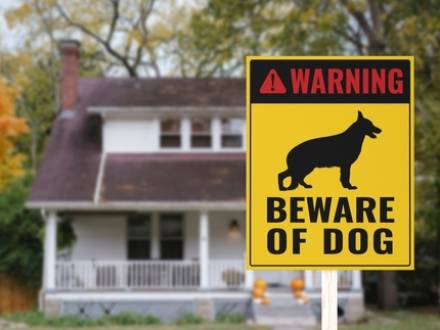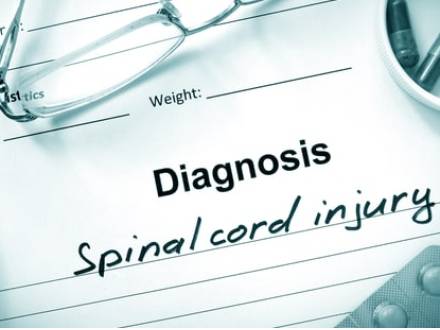Recent Blog Posts
My Workers’ Comp Claim Got Denied. What Can I Do?
 Workers’ comp is intended as a safety net for injuries on the job. In fact, it is estimated that at least 91 percent of Illinois employees are covered under the state’s workers’ compensation laws. However, there are cases where claims get denied, leaving injured employees out in the cold. If your claim for compensation has been denied, an Illinois workers’ comp attorney can help you take legal action.
Workers’ comp is intended as a safety net for injuries on the job. In fact, it is estimated that at least 91 percent of Illinois employees are covered under the state’s workers’ compensation laws. However, there are cases where claims get denied, leaving injured employees out in the cold. If your claim for compensation has been denied, an Illinois workers’ comp attorney can help you take legal action.
At Rathbun, Cservenyak & Kozol LLC, our lawyers are ready to assist you after a denied claim. As the largest and most diverse firm in Will County, we have the resources to pursue a fair remedy for your damages.
Why Do Claims Get Denied?
What separates personal injury claims from workers’ comp claims is fault. In a workers’ compensation claim, you do not have to prove that anybody else caused your injury to get paid. This means that there are limited grounds on which workers’ comp can be denied.
Common Mistakes in Personal Injury Claims
 Getting paid out for an injury caused by another person’s negligence can be a headache. Most people are not familiar with the legal processes that go into filing a personal injury claim, which leaves them open to shady tactics by insurance companies. A skilled Illinois personal injury lawyer can help you overcome the hurdles in your way, providing sound guidance as you file a claim.
Getting paid out for an injury caused by another person’s negligence can be a headache. Most people are not familiar with the legal processes that go into filing a personal injury claim, which leaves them open to shady tactics by insurance companies. A skilled Illinois personal injury lawyer can help you overcome the hurdles in your way, providing sound guidance as you file a claim.
At Rathbun, Cservenyak & Kozol LLC, we have the experience and resources to help you get the compensation you deserve. When you work with our firm, we will devote our full attention to your case, compiling key evidence for your claim.
Waiting Too Long to File
In Illinois, all personal injury claims are bound by a time limit known as the statute of limitations. If you have been hurt due to another person’s careless or reckless actions, you only have two years to take legal action against the liable party. This deadline will come up faster than you may expect, so it is crucial that you file a claim early on before the statute expires.
How Can I Get Survivor Benefits After a Fatal Workplace Accident?
 When your loved one never comes home from work after a deadly accident, the resulting grief can be crushing. Alongside your anguish, you may also be dealing with newfound financial woes due to the loss of income to your household. A supportive Joliet, IL workers’ compensation attorney can help you get compensation through survivor benefits, affording you financial security for years to come.
When your loved one never comes home from work after a deadly accident, the resulting grief can be crushing. Alongside your anguish, you may also be dealing with newfound financial woes due to the loss of income to your household. A supportive Joliet, IL workers’ compensation attorney can help you get compensation through survivor benefits, affording you financial security for years to come.
At Rathbun, Cservenyak & Kozol LLC, we have extensive experience securing workers’ compensation on behalf of injured employees and their families. In past cases, we have secured millions in verdicts for our clients through intense negotiation. As the largest and most diverse firm in Will County, we have the resources to handle any case that comes to our office, and we provide all of our clients with individual attention.
Eligibility
Before you apply for survivor benefits, you should make sure that you are eligible to collect compensation. In Illinois, only the spouse and minor children of the deceased worker are able to receive survivor benefits. An exception may be made for children up to age 22 provided that they are full-time students. Moreover, you have a three-year deadline to submit an application for survivor benefits.
Common Premises Liability Cases in Illinois
 If you are hurt due to a property owner’s negligence, you may have strong grounds for a premises liability case, a type of personal injury claim. To file a successful premises liability claim, you must generally prove that you were legally allowed on the property, that the owner failed to reasonably address a known hazard, and that you were injured by said hazard.
If you are hurt due to a property owner’s negligence, you may have strong grounds for a premises liability case, a type of personal injury claim. To file a successful premises liability claim, you must generally prove that you were legally allowed on the property, that the owner failed to reasonably address a known hazard, and that you were injured by said hazard.
You may not be aware of what does and does not constitute a case of premises liability. A Naperville, IL personal injury lawyer can inform you of your rights and help you get compensation if you have grounds for a claim. The attorneys at Rathbun, Cservenyak & Kozol LLC have secured millions of dollars in verdicts for clients in past cases, as we refuse to back down in negotiations with businesses, insurance companies, and other liable parties.
Slip and Fall Accidents
Slip and fall accidents serve as the classic example of premises liability. This is common with restaurants, bars, and grocery stores, where the risk of a liquid spill is higher. A property owner has a responsibility to clear the hazard or at least issue a clear warning – often observed in the form of ‘wet floor’ signs. Broken floor tiles, faulty steps, and poor lighting can also create a slip and fall hazard.
Dealing With Catastrophic Injury in Factory Accidents
 Factory work often entails hard labor with a high risk of injury. In the worst-case scenario, you could end up permanently disabled after a factory accident, forcing you out of work and depriving you of an income. If you have suffered a catastrophic injury at your job, an attorney can hold your employer accountable and fight for your right to financial aid.
Factory work often entails hard labor with a high risk of injury. In the worst-case scenario, you could end up permanently disabled after a factory accident, forcing you out of work and depriving you of an income. If you have suffered a catastrophic injury at your job, an attorney can hold your employer accountable and fight for your right to financial aid.
At Rathbun, Cservenyak & Kozol LLC, our DuPage County, IL workers’ compensation lawyers are committed to helping injured factory workers recover the compensation they are owed. In one stand-out case result, we successfully secured $2.4 million for a client who was critically injured on a scissor lift.
Types of Catastrophic Injury
"Catastrophic injury" is a general term that describes life-altering injuries with long-term or permanent effects. Not all catastrophic injuries are sustained in a single dramatic accident. Sometimes, harsh conditions in the workplace can lead to the body breaking down over time. Common examples of catastrophic injuries in a factory setting include:
Proving Medical Malpractice in a Wrongful Death Case
 Health care providers should be the safest people to entrust a loved one’s care to. When a doctor or nurse makes a serious mistake that leads to the death of a patient, he or she can be held financially responsible for that mistake in a wrongful death lawsuit. However, wrongful death cases based on medical malpractice can be challenging to prove. In some cases, the surviving family initially has very little information about how their close relative died. It may not be clear whether this was a medical error, an inevitable death caused by a medical condition or injury, or a mishap that was not the result of negligence on the hospital’s part. A medical corporation is very rarely willing to acknowledge that a patient’s death was caused by malpractice if the family has not already become suspicious. You will need a highly experienced Joliet, IL medical malpractice attorney to help you obtain the evidence you will need to prove your case.
Health care providers should be the safest people to entrust a loved one’s care to. When a doctor or nurse makes a serious mistake that leads to the death of a patient, he or she can be held financially responsible for that mistake in a wrongful death lawsuit. However, wrongful death cases based on medical malpractice can be challenging to prove. In some cases, the surviving family initially has very little information about how their close relative died. It may not be clear whether this was a medical error, an inevitable death caused by a medical condition or injury, or a mishap that was not the result of negligence on the hospital’s part. A medical corporation is very rarely willing to acknowledge that a patient’s death was caused by malpractice if the family has not already become suspicious. You will need a highly experienced Joliet, IL medical malpractice attorney to help you obtain the evidence you will need to prove your case.
When a Work Accident Affects Your Earning Capacity
 When a worker is left permanently and totally disabled after a workplace accident, workers’ compensation can often replace the worker's entire paycheck. However, a lot of workers who have sustained permanent and life-altering injuries are no longer able to do the job they had before but are still able to do some work. For example, a factory worker who lost an arm and cannot keep working on the assembly line might be able to find work as a crossing guard or a cashier. However, this job is likely to pay less. In these cases, workers’ compensation can often make up the difference between what you were able to earn before and what you can earn now. If you had to take a lower-paying job after a workplace injury, an experienced Naperville, IL workers’ compensation attorney might be able to help you gain compensation for your lost wages.
When a worker is left permanently and totally disabled after a workplace accident, workers’ compensation can often replace the worker's entire paycheck. However, a lot of workers who have sustained permanent and life-altering injuries are no longer able to do the job they had before but are still able to do some work. For example, a factory worker who lost an arm and cannot keep working on the assembly line might be able to find work as a crossing guard or a cashier. However, this job is likely to pay less. In these cases, workers’ compensation can often make up the difference between what you were able to earn before and what you can earn now. If you had to take a lower-paying job after a workplace injury, an experienced Naperville, IL workers’ compensation attorney might be able to help you gain compensation for your lost wages.
Halloween and Pedestrian Accidents in Residential Areas
 Halloween is widely considered one of the most fun holidays by children and adults alike. Children get to dress up in costumes and go trick-or-treating. Adults are more likely to celebrate by heading out to the bars or to house parties, possibly also in costumes. Unfortunately, this means that there is a higher-than-average number of drunk drivers out on the one night of the year when children flood the street just after dark. This creates a very dangerous situation for everyone involved. If you are injured by a drunk driver this Halloween, an experienced DuPage County, IL pedestrian accident lawyer can fight to recover compensation for you.
Halloween is widely considered one of the most fun holidays by children and adults alike. Children get to dress up in costumes and go trick-or-treating. Adults are more likely to celebrate by heading out to the bars or to house parties, possibly also in costumes. Unfortunately, this means that there is a higher-than-average number of drunk drivers out on the one night of the year when children flood the street just after dark. This creates a very dangerous situation for everyone involved. If you are injured by a drunk driver this Halloween, an experienced DuPage County, IL pedestrian accident lawyer can fight to recover compensation for you.
4 Reasons Halloween is Particularly Dangerous
A few of the reasons why Halloween is a particularly risky night for pedestrians in residential areas that are normally quite safe include:
- Families are out - While New Year's Day is the most common day of the year for drunk driving accidents in general, Halloween is more dangerous for children. While families with young children tend to stay home on New Year’s Eve, so they are not out driving in the deadly post-midnight hours, families with young children are usually out trick-or-treating.
Workers' Compensation After a Catastrophic Injury
 Any workplace injury can have serious short-term effects. Most injured workers will need some time off and might need assistance with the normal activities of daily living while they are healing. Something as simple as a broken finger can prevent you from doing your job for weeks. Other injuries are permanent, life-altering, and devastating to deal with. After a workplace injury leaves you permanently disabled, finding purpose and meaning in life again can take time. If you suffered a catastrophic injury while at work, you may be entitled to significant compensation that can replace your lost wages and more. An experienced Will County, IL workers’ compensation lawyer can help.
Any workplace injury can have serious short-term effects. Most injured workers will need some time off and might need assistance with the normal activities of daily living while they are healing. Something as simple as a broken finger can prevent you from doing your job for weeks. Other injuries are permanent, life-altering, and devastating to deal with. After a workplace injury leaves you permanently disabled, finding purpose and meaning in life again can take time. If you suffered a catastrophic injury while at work, you may be entitled to significant compensation that can replace your lost wages and more. An experienced Will County, IL workers’ compensation lawyer can help.
What is a Catastrophic Injury?
A catastrophic injury is one that is permanent and life-altering. These severe injuries will never fully heal and impact how you function in daily life. Common examples of catastrophic injuries include:
Why Should I Hire an Experienced Personal Injury Lawyer?
 You have probably seen ads urging you to call a personal injury attorney after you are injured in an accident and wondered why you need a lawyer to file your claim. You do not have to hire an attorney; you can handle your claim alone. However, there are several reasons why it is usually a good idea to choose a skilled law firm that focuses on personal injury law. Rathbun, Cservenyak & Kozol LLC explains.
You have probably seen ads urging you to call a personal injury attorney after you are injured in an accident and wondered why you need a lawyer to file your claim. You do not have to hire an attorney; you can handle your claim alone. However, there are several reasons why it is usually a good idea to choose a skilled law firm that focuses on personal injury law. Rathbun, Cservenyak & Kozol LLC explains.
How Do Personal Injury Claims Work?
Most personal injury claims are based on negligence, which means failing to behave like a reasonable person would in the same situation. After an accident or incident, qualified injured victims can seek compensation from at-fault parties by filing an insurance claim. Many claims arise from:
-
Slip and fall accidents and other premises liability incidents








